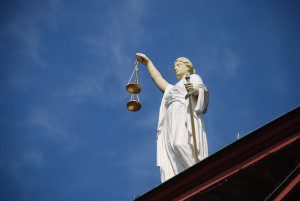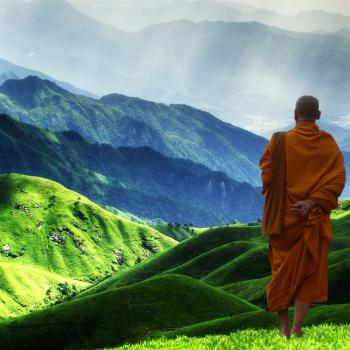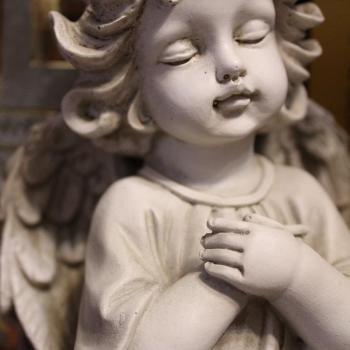I was recently asked a deceptively simple question, “Do you think life is fair?” For me, that “simple” question initially prompted thoughts about fairness, and quickly deepened into questions relating to the relationship between judgment and justice, and karma and accountability. With high emotion dominating our social and political landscape, fear is surfacing to a degree rarely seen, making us highly susceptible to deception and manipulation by others, whose sole purpose is to separate us from each other, to polarize us by amplifying our fear. In a world threatening and dangerous for so many, in which so much seems off-balance and in which the “scales of justice” seem to be radically plummeting from one extreme to another with every news report, I believe, that examining and coming to terms with our own thoughts, words and actions in relation to judging and our understanding of true justice has real potential to alter the status quo.
As Humans We Are Hard-Wired to Expect Fairness
Our sense of fairness is a basic part of us from our earliest memories. We come into life predisposed to expect fairness. As reported by Kj Dell’Antonia in “When A Child Thinks Life Is Unfair, Use Game Theory,” (NY Times, Family, July 5, 2016) researchers suggest that this notion of equal sharing may have given an evolutionary advantage to our earliest ancestors. In times of scarcity, the very survival of the group was dependent on sharing food and resources. Toddlers as young as 19 months recognize what is fair and what isn’t. So deeply embedded in the human psyche is this notion of fairness, that even as children, we rail against anything we perceive to be unfair. As a mother and a teacher, I was often confronted with the words, “That’s not fair!” If it was a situation I had some control over, I would listen. If not, saying, “That’s just the way it is,” rang hollow, and I could see that hollowness in the children’s eyes.
When we perceive something to be unfair, we want something to happen, to fix it –sooner rather than later. Yet, unfairness is all around us – as poverty, as violence, as illness, as inequality. We expect that effort will be rewarded with success. But, what if it isn’t? We expect evil to be punished and for good to prevail. But, what if the opposite occurs?
When we are the subject of violence, of indiscriminate bombing, when our children and babies are killed and our wedding parties and hospitals are destroyed, we retaliate. We give our cause an ideology. We claim “God” for our side, because the injustice is both inconceivable and intolerable.
What can the lesson of all this unfairness around us possibly be?
I see two things operating in concert here – our native, inherent impulse toward fairness and justice, union and cooperation, and the countless examples of injustice in the world. Coupled together they present us with an enormous opportunity to shift and transform our world and how we operate in it. But, what is it about justice and judgment that we as a species are not understanding?
Judgment versus Justice
It seems the most natural thing in the world to do, to separate right from wrong, “good” from “bad.” Indeed our ability to “evaluate” has been essential to our evolution. As adults we have come to refine this style of “evaluation” to a “science,” judging every person we encounter and event we experience, sometimes even before we know we’ve done it.
Yet, there is a difference between judging the world around us and experiencing the world around us. There is a difference between demonizing the perpetrator of the act and seeing the act for the injustice that it is.
We need to look deeper into this tendency that we humans have to judge. And, related to that, how have we been responding to injustice? It’s clear that judging and in-kind violent responses haven’t worked for five thousand years. We have yet to rid the world of war, displacement, refugees, hunger or poverty. How much violence has been a direct reaction to a perceived and/or real injustice of life?
By assigning ontological value to a person or situation, judgment leads to, supports and enables conflict. It is a passionate, emotional response. Inherent in judging is an evaluation of behavior – and potentially a sense of “I could never do that,” or even, “I am better than that.” It causes us to see “the other” as lesser than we are, and we as better than others. Standing in the shoes of “the other”, what might our actions have been? In our process of discernment, it is essential that we consider that possibility.
Justice without judgment is an equally passionate and dedicated “call to action,” but from a higher perspective and without perpetuating the negative energy already afoot. Justice is righteousness, a striving beyond the factual and the practical, beyond even the ethical and the moral, a joining to the higher Divine intention and goal of seeking what is right and good. We must make room in our hearts for compassion – in particular compassion for the God-presence within every individual, struggling with what has brought him/her to a solitary place of separation.
The most significant progress made toward equality in our world has been the product of non-violent movements for political and social change. Surely there was more than ample opportunity for judging in those situations. When Mohandas Gandhi led his people in a march from Ahmedabad to the Arabian Sea coast in search of salt, in the spring of 1930 in India, tens of thousands of Indians were beaten and arrested. Their passion and “call to action” is dramatically evident. Their passion is rooted not in emotion, but in their sense of justice, their commitment to the right and the good. Their inspiring courage and highly disciplined non-violence receive strength and potency from this commitment.
Is our rush to judgment always a “given?”
It seems not. We do at times suspend our “tendency to judge.” In times of great need, in times of dependency, in crises, in floods, in fires, in illness, in nursing homes, in care of the ill, disabled or elderly, judging is forced out of the equation. We experience the plight of the “other” and we are moved by compassion. In times like these our tendency to judge seems to simply “melt” away. We become aware of what is our natural state of mutual dependency and choose to unite and cooperate with others. We also make a choice when we separate from others – for whatever reason we do that – that is not natural.
Karma and Accountability
There are many ways to think about karma: as simply the law of cause and effect; or, as the “teacher” that allows me to experience the effect of my actions on others, because I will learn by having the same experience at the hands of another; or, karma can be seen as attachment. It can be “instant,” as in the John Lennon song “Instant Karma (We All Shine On)” or take many lifetimes to fulfill. Karma is the neutral law of accountability of the universe we inhabit.
We want to be aware that there is nothing benign about judging. Judging creates that much more of the negativity that we are trying to escape. We need look no further than the scriptures for confirmation of that. “Judge not, lest you be judged.” This quote is not about how many infractions of religious laws (large or small) we are often guilty of and who is keeping track of them, so much as, to what extent have we, regardless of the circumstances, managed to love each other. The scriptures are issuing a warning here about accountability. We need to hold ourselves accountable for every injustice we have done and/or allowed to occur “on our watch” and in whatever “playground” we have played upon.
It seems to me, that the Gandhis of the world hold a much greater picture of and more hope for humanity. Their picture is bigger because they are able to “telescope out” and push their understanding beyond their immediate circumstances. How might that shift what we see? When we stand back and “witness” our lives, almost as though we are seeing ourselves in a movie or theatrical production, we become conscious of everything else in the environment. As the lines of separation between us fade, we see all the possibilities. From this observation point of “witnessing consciousness,” we are better able to make a conscious, informed choice, because “witnessing consciousness” is neither reactive, nor driven by ego. Our actions then are more powerful as a result of this impartial discernment. We see and embrace the best action, that is, the action most aligned with Divine purpose, which we can take in any given situation. This is the move toward justice.
A parting thought
We can no longer afford to simply “react.” In the following quote, Rumi (13th-century Persian poet and Sufi mystic) speaks to one paradox at the center of personal spiritual evolution,
“Out beyond ideas of wrongdoing and rightdoing,
there is a field. I will meet you there.”
Both the “right” and the “wrong” are our teachers. And we are the reluctant students. Maybe the ascent into understanding is just that simple – painful, but simple. . . patience requiring, but simple. . . courageous, determined, and principled, but simple.
The mountain is indeed high for the climbing – to embrace a world that is neither right nor wrong, but a world that simply is – up to and until we interact with it. Will we create a better world, or will we convince ourselves that the status quo is inevitable?
Do you think life is fair? What will you choose to do in your life and how will you do it?













